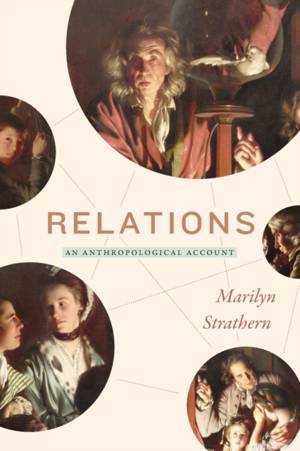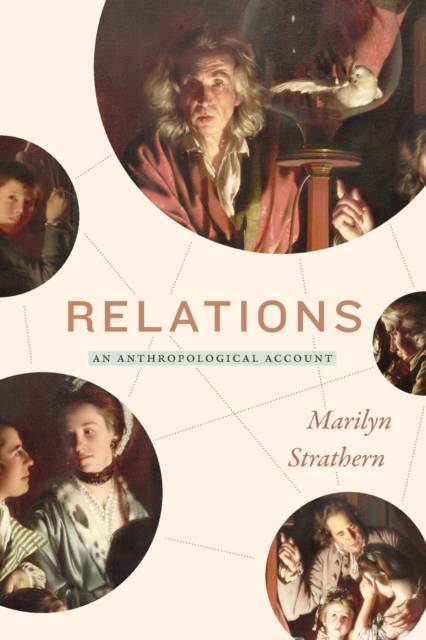
- Afhalen na 1 uur in een winkel met voorraad
- Gratis thuislevering in België vanaf € 30
- Ruim aanbod met 7 miljoen producten
- Afhalen na 1 uur in een winkel met voorraad
- Gratis thuislevering in België vanaf € 30
- Ruim aanbod met 7 miljoen producten
Zoeken
Omschrijving
The concept of relation holds a privileged place in how anthropologists think and write about the social and cultural lives they study. In Relations, eminent anthropologist Marilyn Strathern provides a critical account of this key concept and its usage and significance in the English-speaking world. Exploring relation's changing articulations and meanings over the past three centuries, Strathern shows how the historical idiosyncrasy of using an epistemological term for kinspersons ("relatives") was bound up with evolving ideas about knowledge-making and kin-making. She draws on philosophical debates about relation--such as Leibniz's reaction to Locke--and what became its definitive place in anthropological exposition, elucidating the underlying assumptions and conventions of its use. She also calls for scholars in anthropology and beyond to take up the limitations of Western relational thinking, especially against the background of present ecological crises and interest in multispecies relations. In weaving together analyses of kin-making and knowledge-making, Strathern opens up new ways of thinking about the contours of epistemic and relational possibilities while questioning the limits and potential of ethnographic methods.
Specificaties
Betrokkenen
- Auteur(s):
- Uitgeverij:
Inhoud
- Aantal bladzijden:
- 288
- Taal:
- Engels
Eigenschappen
- Productcode (EAN):
- 9781478008354
- Verschijningsdatum:
- 17/04/2020
- Uitvoering:
- Paperback
- Formaat:
- Trade paperback (VS)
- Afmetingen:
- 152 mm x 229 mm
- Gewicht:
- 385 g

Alleen bij Standaard Boekhandel
+ 85 punten op je klantenkaart van Standaard Boekhandel
Beoordelingen
We publiceren alleen reviews die voldoen aan de voorwaarden voor reviews. Bekijk onze voorwaarden voor reviews.








